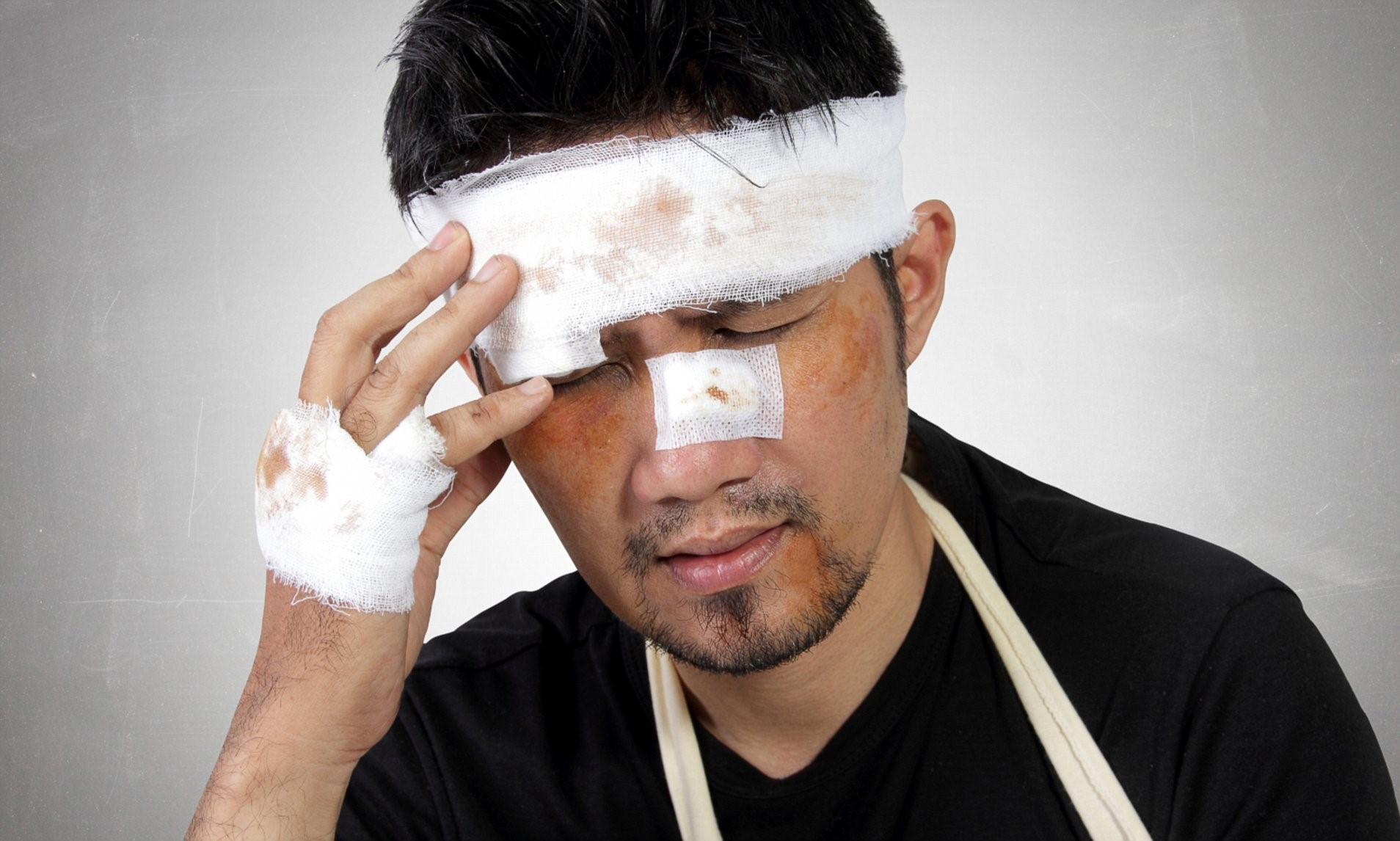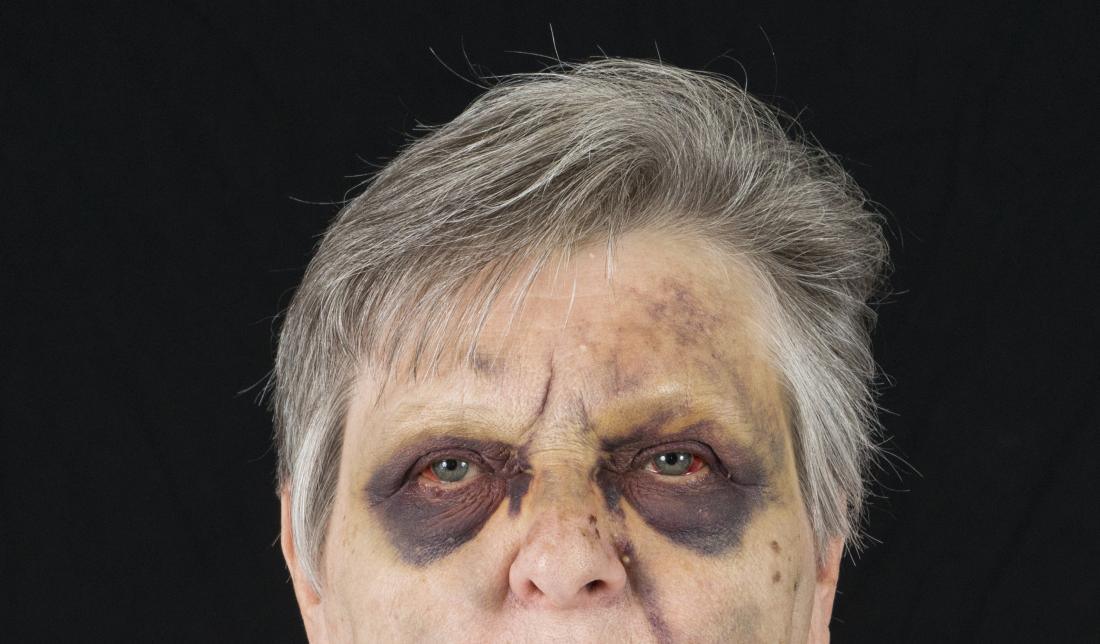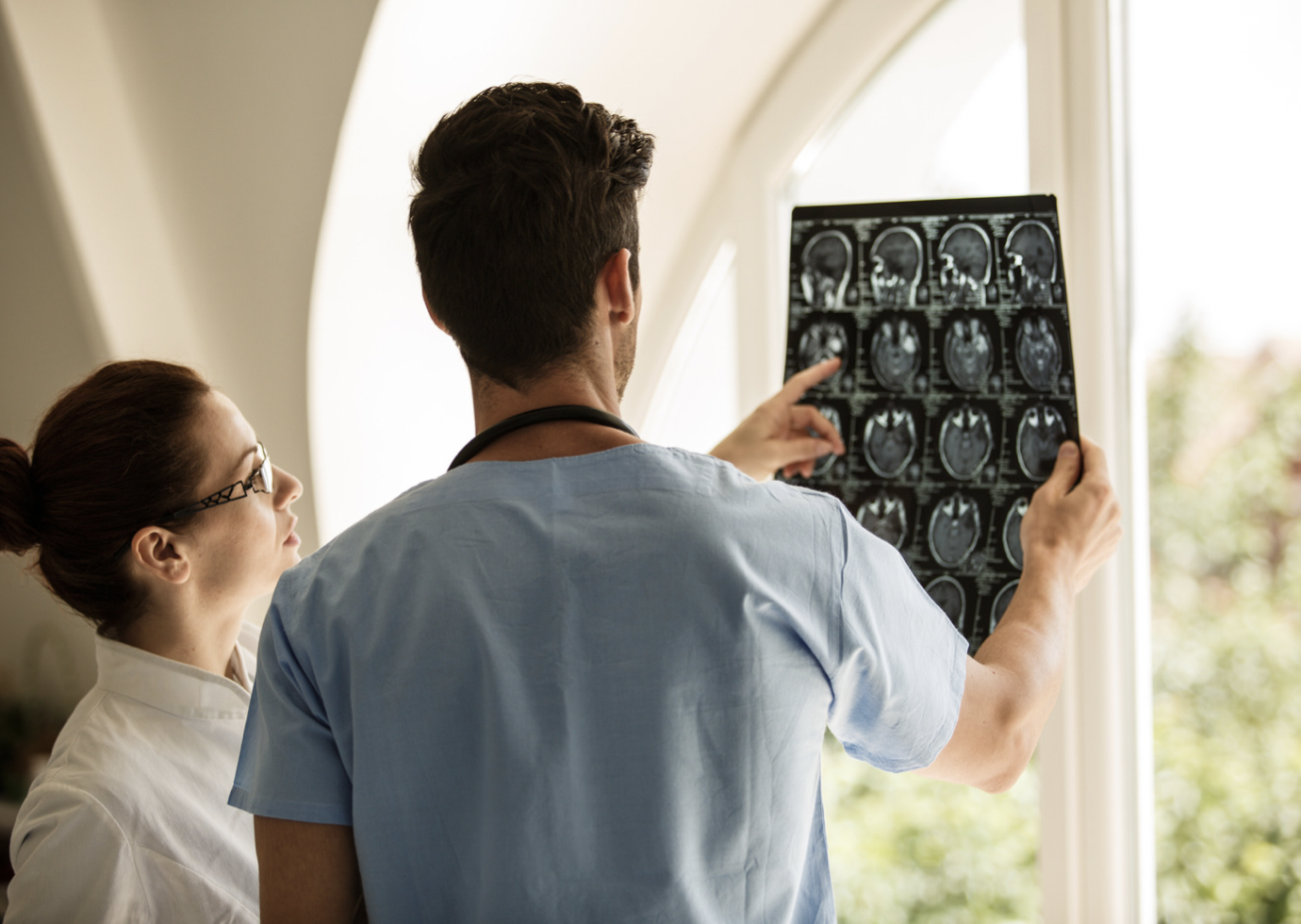Definisi
Trauma saraf penghidu adalah kondisi terjadinya cedera pada saraf penghidu atau saraf olfaktori. Saraf penghidu adalah saraf kepala (saraf kranialis) yang berfungsi untuk mendeteksi dan mencium bebauan. Saraf penghidu termasuk dalam saraf sensorik yang berfungsi untuk mengolah informasi yang didapat dari lingkungan, dalam hal ini saraf penghidu akan menyampaikan sinyal bau-bauan ke otak. Saraf ini adalah saraf sensorik terpendek.
Saraf penghidu adalah satu dari dua saraf yang berawal dari otak besar (serebrum). Saraf lainnya yang berasal dari otak besar adalah saraf penglihatan. Beberapa saraf kranialis lainnya dimulai dari bagian otak yang lebih ke bawah, seperti otak tengah, pons, dan medula oblongata, yang secara keseluruhan disebut sebagai batang otak.
Mekanisme Penghidu
Saraf penghidu mendapatkan rangsangan lewat dua jalur, yaitu:
- Lubang hidung
Benda dapat mengeluarkan molekul-molekul kecil yang masuk ke lubang hidung, kemudian ditangkap oleh reseptor (penangkap rangsang). Reseptor penghidu memiliki beberapa kombinasi spesifik, sehingga Anda dapat menghidu berbagai jenis bau yang berbeda.
- Bagian belakang tenggorokan
Mengunyah makanan atau menenggak minuman dapat melepaskan molekul yang dapat membantu penghidu. Molekul ini berjalan dari tenggorokan ke reseptor olfaktori pada bagian belakang hidung.
Penyebab
Infeksi saluran napas atas dan cedera kepala adalah dua penyebab tersering dari gangguan penciuman dan indra perasa. Cedera kepala adalah penyebab gangguan penciuman pada 5% hingga 17% kasus, bisa muncul akibat kecelakan bermotor atau karena jatuh. Cedera kepala dapat menyebabkan hidung patah, atau serat saraf bisa terpotong atau robek akibat trauma.
Sementara itu, infeksi saluran napas atas seperti sinusitis atau kondisi medis pada hidung seperti polip hidung juga dapat merusak saraf penghidu. Hal ini terjadi karena Infeksi akan menyebabkan gangguan pembersihan hidung serta sumbatan aliran udara yang menimbulkan gangguan penciuman.
Trauma benda tumpul juga dapat menyebabkan kerusakan pada saraf penghidu. Pada trauma tumpul, bisa terjadi goresan terhadap saraf penghidu tersebut. Tidak hanya itu, trauma juga dapat langsung merusak bulbus olfaktorius (berada di otak depan) yang mendeteksi aroma suatu benda.
Posisi saraf penghidu membuat prosedur jelajah otak bagian depan sulit dilakukan. Hal ini dapat menyebabkan risiko cedera terutama ketika pembedahan. Ketika melakukan pembedahan, ada tiga mekanisme trauma saraf penghidu, seperti:
- Terlepasnya bagian dasar tulang tengkorak beserta bagian saraf penghidu saat penarikan bagian depan otak.
- Terpotongnya sebagian atau seluruh jalur saraf penghidu saat prosedur diseksi.
- Luka yang menyebabkan berkurangnya aliran darah ke suatu bagian tubuh, dalam hal ini saraf penghidu.
Anda bisa membaca artikel mengenai sinusitis di sini: Penyakit Sinusitis - Definisi, Penyebab, Gejala, dan Tata Laksana.
Faktor Risiko
Semua orang berisiko untuk mengalami trauma saraf penghidu. Namun, orang yang berolahraga dengan kontak fisik (seperti rugby atau gulat) lebih berisiko mengalami trauma pada wajah, termasuk cedera pada saraf penghidu. Kemungkinan terjadinya gangguan penciuman akan tergantung dengan:
- Keparahan cedera kepala.
- Cedera kepala yang terjadi.
- Usia pasien.
- Durasi terjadinya amnesia pasca cedera kepala bila ada.
Anda bisa membaca artikel mengenai cedera kepala di sini: Cedera Kepala - Definisi, Penyebab, Gejala, dan Tata Laksana.
Gejala
Trauma pada saraf penghidu dapat menyebabkan kelainan sebagai berikut:
- Anosmia, kehilangan sensasi penghidu.
- Disomia (fantosmia), bau yang tidak mengenakkan atau aneh dan muncul secara tiba-tiba.
- Hiposmia, kehilangan sebagian sensasi penghidu.
- Parosmia, penciuman bau berbeda. Sebagai contoh, bau makanan dapat tercium sebagai bahan kimia beracun atau jamur.
Gangguan penciuman sering kali tidak terdeteksi selama beberapa hari bahkan berminggu-minggu setelah kondisi penyebab terjadi, seperti cedera. Diperkirakan ada sekitar 5% pasien cedera kepala yang akan mengalami gangguan penciuman.
Anda bisa membaca artikel mengenai anosmia di sini: Anosmia - Definisi, Penyebab, Gejala, dan Tata Laksana.
Diagnosis
Penegakan diagnosis trauma pada saraf penghidu dapat dilakukan pada rawat inap maupun rawat jalan. Dokter dapat meminta Anda untuk mencubit atau menutup salah satu lubang hidung dengan mata ditutup, kemudian Anda diminta untuk mencium bau-bauan yang familiar, seperti kopi, vanila, atau kayu manis. Anda dapat diminta untuk menjelaskan ciri bau-bauan tersebut. Pemeriksaan ini kemudian dilakukan pada lubang hidung sebelahnya. Hal ini bertujuan untuk membandingkan penghidu antara kedua lubang hidung. Biasanya, dokter tidak akan memakai bau-bauan tajam seperti alkohol dan amonia.
Pemeriksaan pencitraan juga penting untuk melihat bila terdapat kerusakan pada sistem penciuman. Pencitraan umumnya dilakukan pada area kepala dan wajah untuk melihat tampilan jaringan lunak dan tulang bila ada kelainan.
Tata Laksana
Tata laksana trauma saraf penghidu tidak spesifik, tergantung penyebabnya. Terapi yang dapat dilakukan untuk kerusakan saraf penghidu adalah pelatihan olfaktori. Pada latihan ini, Anda dapat melatih kembali saraf-saraf penghidu Anda agar dapat mencium bebauan kembali.
Pada beberapa kasus, disomia dapat sembuh sendiri. Selain itu, COVID-19 dapat menyebabkan anosmia karena diduga virus merusak saraf olfaktori. Pada COVID-19, fungsi penghidu dapat kembali setelah beberapa bulan.
Terapi utama trauma saraf penghidu adalah adaptasi terhadap kondisi tersebut. Anda dapat melakukannya dengan berbagai cara. Misalnya, Anda dapat memasang alarm kebakaran agar Anda tahu bahwa ada kebakaran, karena Anda tidak dapat mencium bau asapnya. Selain itu, Anda juga dapat menjalani konseling nutrisi. Beberapa makanan dan rempah-rempah dapat merangsang reseptor penciuman lebih baik daripada zat-zat lainnya.
Komplikasi
Gangguan saraf penghidu bisa memengaruhi kualitas hidup penderitanya dan meningkatkan risiko terjadinya cedera pada diri. Sangat sulit membayangkan hidup tanpa mencium aroma harum seperti bunga mawar, atau kopi. Saraf penghidu membantu kita dalam mencium berbagai aroma, misalnya saat makan.
Jika saraf penghidu yang rusak tidak membaik, Anda tidak dapat menghidu aroma makanan dan minuman, lebih berisiko memakan makanan yang sudah busuk atau tidak sengaja minum zat kimia beracun atau bahkan tidak dapat mencegah kebakaran dari kebocoran gas. Hal ini dapat membuat Anda jatuh ke dalam depresi, karena Anda kesulitan menikmati makan dan minum.
Anda bisa membaca artikel mengenai depresi di sini: Penyakit Depresi - Definisi, Penyebab, Gejala, dan Tata Laksana.
Pencegahan
Kadang, trauma pada saraf penghidu sulit dicegah. Namun, Anda dapat menurunkan risiko gangguan saraf penghidu akibat trauma dengan menghindari aktivitas berbahaya yang dapat menyebabkan cedera kepala. Selain itu, Anda dapat menggunakan helm atau alat pelindung diri lainnya ketika berolahraga seperti bersepeda, rugby, atau saat berkendara dengan sepeda motor.
Kapan Harus ke Dokter?
Anda bisa berkunjung ke dokter jika Anda merasakan penurunan fungsi penghidu setelah mengalami kecelakaan, terutama apabila Anda mengalami patah tulang pada wajah. Tidak hanya itu, Anda dapat berkonsultasi kepada dokter mengenai masalah penghidu setelah menjalani pembedahan pada kepala, seperti:
- Terjadi perubahan penghidu.
- Mencium bau busuk tanpa penyebab.
- Kehilangan fungsi penghidu Anda.
Masalah penghidu seringkali dianggap sepele dan jarang diperiksa, padahal diperkirakan setengah dari semua orang berusia lanjut (di atas 60 tahun) mengalami penurunan penghidu. Masalah penghidu dapat menghalangi Anda untuk menikmati makanan dan minuman dengan baik, serta dapat membahayakan diri Anda karena tidak mencium bau gas bocor atau bau busuk dari makanan basi. Hal-hal berbahaya tersebut dapat dicegah apabila Anda berkonsultasi pada dokter untuk mendapat penanganan lanjutan dan beradaptasi terhadap kehilangan fungsi saraf penghidu.
Selain itu, Anda dapat berkunjung ke dokter apabila Anda memerlukan pertolongan lebih lanjut. Anda juga dapat berkunjung ke dokter untuk konsultasi apabila Anda mengalami perubahan suasana perasaan, memiliki gejala depresi, atau muncul ide untuk mengakhiri hidup.
Mau tahu informasi seputar penyakit lainnya? Cek di sini, ya!
- dr Hanifa Rahma
Olfactory Nerve. Physiopedia. (2022). Retrieved 2 October 2022, from https://www.physio-pedia.com/Olfactory_Nerve.
Olfactory Nerve: Overview, Function & Anatomy. Cleveland Clinic. (2022). Retrieved 2 October 2022, from https://my.clevelandclinic.org/health/body/23081-olfactory-nerve.
Pressman, P., & Metrus, N. (2022). What Are Olfactory Disorders and What Causes Them?. Verywell Health. Retrieved 2 October 2022, from https://www.verywellhealth.com/disorders-of-olfaction-2488765.
Howell, J., Costanzo, R. M., & Reiter, E. R. (2018, March 14). Head trauma and olfactory function - PMC. PubMed Central (PMC). Retrieved October 17, 2022, from https://www.ncbi.nlm.nih.gov/pmc/articles/PMC6051255/.












